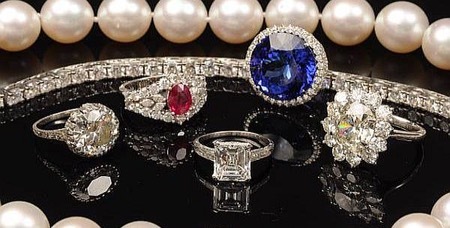Estate jewelry is an often-overlooked treasure trove of value. These precious pieces have been passed down through generations, and they hold both sentimental and monetary worth. If you’re looking to unlock the full potential of your estate jewelry, then read on for tips from a pro.
Introduction to Estate Jewelry and Its Value
Heirloom jewelry refers to antique or vintage pieces that have been previously owned and handed down from one generation to another. This type of jewelry can include anything from engagement rings to brooches, necklaces, earrings, and more. The value of estate jewelry lies not only in its intrinsic beauty but also in its rarity, historical significance, and craftsmanship.
Tips for Selling Your Estate Jewelry to Colucci Jewelry
If you’re considering selling your estate jewelry, there are several things you should know beforehand. Firstly, it’s essential to work with a reputable buyer who has experience in evaluating and purchasing estate jewelry. One such company is Colucci Jewelry, which specializes in buying and selling high-end estate jewelry. Here are some tips for working with them:
1. Do your research: Before approaching any buyer, do your homework about the current market values of similar pieces. This will help you get a rough idea of what your piece might be worth.
2. Get multiple offers: Don’t settle for the first offer you receive. Instead, seek out at least three different quotes from various buyers to ensure you’re getting the best price possible.
3. Be transparent: Honesty is key when dealing with a professional buyer like Colucci Jewelry. Disclose all known information about the piece, including its history, condition, and any flaws or imperfections.
4. Negotiate wisely: Once you’ve received multiple offers, negotiate wisely to ensure you’re getting the most money possible while still being fair to the buyer.
How Much is My Estate Jewelry Worth?
Determining the value of your estate jewelry can be challenging, as it depends on many factors, including its age, condition, rarity, and provenance. However, here are some general guidelines to consider:
1. Age: Older pieces tend to hold higher value than newer ones because they are considered more rare and collectible.
2. Condition: The condition of your piece plays a significant role in determining its value. A well-maintained piece in excellent condition will fetch a higher price than one with visible damage or wear.
3. Rarity: Unusual or unique pieces that were produced in limited quantities are typically more valuable than common designs.
4. Provenance: A piece with a notable history or ownership can increase its value significantly. For example, if your estate jewelry once belonged to a famous personality or was created by a renowned designer, it may be worth more.
Determining the Best Time to Sell Your Estate Jewelry
The decision to sell your estate precious stones comes down to personal preference and circumstances. However, here are some factors to consider when deciding whether now is the right time to sell:
1. Market trends: Keep an eye on the current state of the jewelry market to determine whether prices are up or down. Selling during periods of high demand can result in higher profits.
2. Personal needs: If you need cash quickly or want to liquidate assets, selling your estate jewelry could provide the funds you require.
3. Inheritance taxes: If you’ve inherited jewelry and don’t plan to keep it, selling it could help offset inheritance taxes.
The Pros and Cons of Selling Your Estate Jewelry

Selling your Heirloom jewelry can be a complex decision, so it’s essential to weigh the pros and cons carefully before proceeding. Here are some advantages and disadvantages to consider:
Advantages:
1. Cash flow: Selling your estate pieces can provide immediate access to cash that you can use for other purposes.
2. Tax benefits: Depending on your individual situation, selling your estate jewelry could potentially reduce your tax liability.
3. Decluttering: If you have a large collection of estate-type jewelry that you no longer wear or display, selling it can free up space and simplify your life.
Disadvantages:
1. Emotional attachment: Many people form emotional attachments to their estate jewelry, making it difficult to part with.
2. Loss of heritage: If you’re planning to pass down your estate jewelry to future generations, selling it would prevent them from inheriting those family heirlooms.
Conclusion: Unlocking the Full Potential of Your Estate Jewelry
Whether you decide to sell your inherited jewelry or keep it for posterity, understanding its true value is crucial. By following these tips and working with experienced professionals like Colucci Jewelry, you can unlock the full potential of your old precious jewelry and make informed decisions about its future. Read More or Check us out on Facebook.